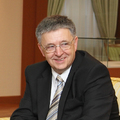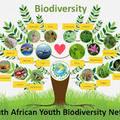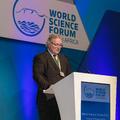World Science Forum 2011 Budapest - Day 1/2. - The changing landscape of science: challenges and opportunities
17 November, 10:00-11:30 PLENARY SESSION I: “THE CHANGING LANDSCAPE OF SCIENCE: CHALLENGES AND OPPORTUNITIES”
Venue: Ceremonial Hall, Hungarian Academy of Sciences 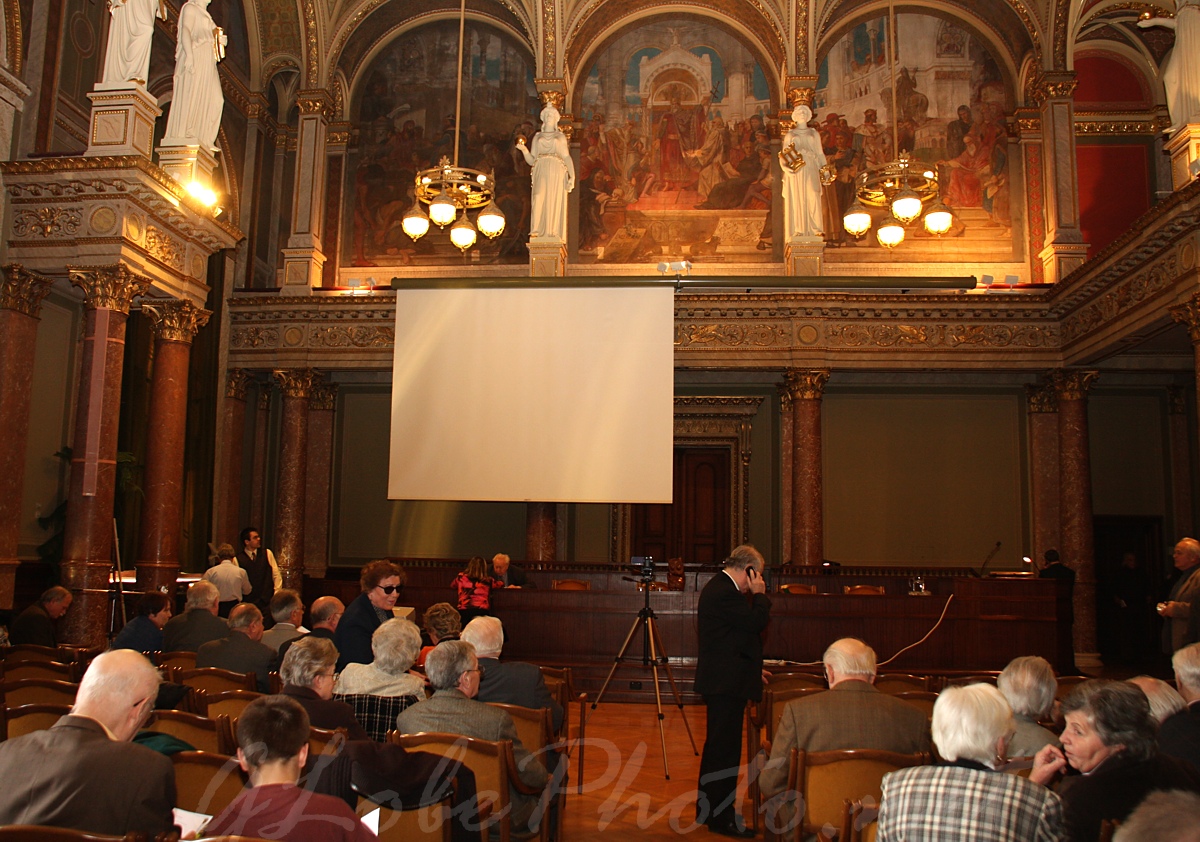 chaired by József Pálinkás
chaired by József Pálinkás
Sergio Machado Rezende, Former Minister of Science and Technology, Brazil
 He was one of the founders and chairman of the Physics Department (1972 – 1975) of the Federal University of Pernambuco (UFPE). He has published over 220 scientific papers on dynamic excitation phenomena in magnetic materials, magnetic light scattering, phenomena in magnetic films and nano-structures and in spintronics. His scientific activities have never been interrupted by management positions he held, e.g. President of FINEP, the main federal agency for funding S&T in Brazil (2003-2005) and Minister for Science and Technology of Brazil (2005-2010).
He was one of the founders and chairman of the Physics Department (1972 – 1975) of the Federal University of Pernambuco (UFPE). He has published over 220 scientific papers on dynamic excitation phenomena in magnetic materials, magnetic light scattering, phenomena in magnetic films and nano-structures and in spintronics. His scientific activities have never been interrupted by management positions he held, e.g. President of FINEP, the main federal agency for funding S&T in Brazil (2003-2005) and Minister for Science and Technology of Brazil (2005-2010).
World Science Forum 2011 - Science in Brazil: Never too late
Science in Brazil is still in a very young stage. In this talk I will review the historical development of science and technology in Brazil and show how it stands in the world in view of the progress made in the last decade. In 1960 there were less than 100 scientists with the PhD degree in the Country. This situation has changed dramatically and today there are over 80 000 scientists working in all areas of science and technology, mainly in the academic environment. In recent years the federal and state governments have implemented initiatives and increased their budgets to support S&T. Brazilian scientists and engineers are contributing in frontier areas in an increasingly faster pace. Companies are finally waking up for the need to conduct R&D activities and are hiring researchers with graduate education. 
World Science Forum 2011 - Tudomány Brazíliában: sohasem késő
A tudomány Brazíliában még igen fiatal korát éli... 1960-ban kevesebb, mint 100 tudósnak volt PhD fokozata az országban. Ez azóta drámaian megváltozott, és mára több mint 80 000 tudós dolgozik a különböző tudományos-technikai területeken, főként egyetemi környezetben, továbbá a 236 egyetemen közel 85 ezer PhD hallgató tanul. Az utóbbi években a föderáció kormánya és a szövetségi államok kormányai kezdeményezőleg léptek fel, és megemelték a tudományos-technikai költségvetést. A brazil tudósok és mérnökök egyre gyorsabb ütemben aktivizálódnak a határvidékeken. Végre a vállalatok is ráébrednek arra, hogy szükség van kutatási és fejlesztési tevékenységekre, ezért magasabb képzettségű kutatókat alkalmaznak.
William "Bill" Colglazier  Science and Technology Adviser to US Secretary of State Hillary Clinton
Science and Technology Adviser to US Secretary of State Hillary Clinton
In July 2011, William Colglazier has been selected to be the new Science and Technology Adviser to US Secretary of State Hillary Clinton.
He served for 18 years as executive officer of the National Academy of Sciences (NAS) and as chief operating officer of the National Research Council (NRC), until his retirement in June 2011. From 1991 to 1994, he was executive director of the Office of International Affairs of the NRC. From 1983 to 1991, he was professor of physics and director of the Energy, Environment, and Resources Center at the University of Tennessee. He worked at the Stanford Linear Accelerator Center, the Institute for Advanced Study in Princeton, and the Kennedy School of Government at Harvard prior to 1983. While at Harvard, Colglazier also served as associate director of the Program in Science, Technology, and Humanism of the Aspen Institute. He is past chair of the Forum on Physics and Society of the American Physical Society and a fellow of the American Association for the Advancement of Science and the American Physical Society. Colglazier received his Ph.D. in theoretical physics.
A WSF 2011-en William Colglaizer, az Egyesült Államok külügyminiszterének tudományos és technológiai tanácsadója elmondta: a tudomány az együttműködés leghatékonyabb terepe lehet, ezért a politikai döntéshozatalban is nagyobb szerephez kell jutnia.
 Sir Chris Llewellyn Smith FRS, Chair, the Royal Society Advisory Group on Global Science Report
Sir Chris Llewellyn Smith FRS, Chair, the Royal Society Advisory Group on Global Science Report
Chris Llewellyn Smith is a theoretical physicist. He is currently Director of Energy Research, Oxford University, and President of the Council of SESAME (Synchrotron-light for Experimental Science and Applications in the Middle East). He was the Director General of CERN (1994-1998), and Chairman of Oxford Physics (1987-1992). During his mandate as DG of CERN the Large Hadron Collider (LHC) was approved and construction started, and the Large Electron Positron collider (then CERN’s flagship project) was successfully upgraded.
Sir Chris Llewellyn Smith - elnök, a Royal Society Tanácsadó Csoportja a Globális Tudomány Jelentéskészítéshez. Elméleti fizikus, energiakutatási igazgató (Oxfordi Egyetem), a SEASAME Társaság elnöke (Szinkrotron-fény a kísérleti tudományokban és az alkalmazásokban a Közép-Keleten).
World Science Forum 2011 - International Scientific Collaboration: benefits, challenges and opportunities
The global scientific landscape is changing dramatically. China has emerged as a scientific superpower. Brazil, India and South Korea are entering the premier scientific league, and many other countries are becoming serious scientific players. In parallel, scientific collaboration is increasing rapidly: over 35% of peer-reviewed scientific articles with an abstract in English are the product of international collaboration, up from a quarter fifteen years ago. I will draw on the Royal Society’s recent report ‘Knowledge, networks and nations’ to review these changes, and consider case studies which provide lessons for future collaborations that are designed to address global problems.
World Science Forum 2011. - Nemzetközi tudományos együttműködés: előnyök, kihívások és lehetőségek
A tudomány globális látképe drámaian változik. Kína tudományos szuperhatalommá vált. Brazília, India és Dél-Korea éppen ott tart, hogy bekerüljön a tudományos NB1-be, és sok más ország is komoly tudományos szereplővé válik.
Ezzel párhuzamosan gyorsan növekszik a nemzetközi tudományos együttműködés: az angol absztrakttal rendelkező, szakmailag lektorált tudományos cikkek több mint 35%-a nemzetközi együttműködés eredménye. E változásokat a Royal Society új, „Tudás, hálózatok és nemzetek” című jelentése alapján közelítem meg, és olyan tanulmányokat elemzek, amelyek tanulságul szolgálhatnak a globális problémák megoldását célzó jövőbeli együttműködésekhez.
Video: Smith on the Energy Challenge
Johan Rockström, 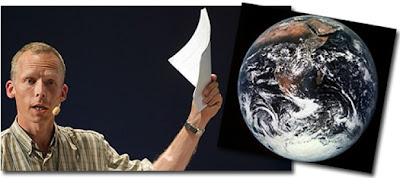 Member, ICSU Scientific Overview Committee
Member, ICSU Scientific Overview Committee
Johan Rockström is a Professor in natural resource management at Stockholm University, and the Executive Director of the Stockholm Environment Institute and the Stockholm Resilience Centre. He is an internationally recognized scientist on global sustainability issues, where he, e.g., led the recent development of the new Planetary Boundaries framework for human development in the current era of rapid global change. He is a leading scientist on global water resources, and strategies to build resilience in water scarce regions of the world, with more than 15 years experience from applied water research in tropical regions. Rockström was awarded the title “Swede of the Year" in 2009 for his work on bridging science on climate change to policy and society. He was ranked the 2nd most influential person on environmental issues in Sweden 2010, and was recently, in August 2010, given the “Social Capitalist Award" by Veckans Affärer.
Johan Rockström a stocholmi Környezettudományi Intézet ügyvezető igazgatója, a természeti erőforrásokkal való gazdálkodás professzora. A globális fenntarthatósági kérdések, a globális vízforrások és a vízhiányos területek stratégiáinak nemzetközileg elismert, vezető tudósa. 15 éve végez alkalmazott kutatásokat trópusi területeken. Rockströmöt 2009-ben az „Év Svédje” címmel tüntették ki, amiért a klímaváltozással kapcsolatos tudományos eredményeket sikeresen tudta közvetíteni a politika és a társadalom felé. 2010-ben környezetvédelmi kérdésekben Svédország második legbefolyásosabb embere, és 2010 augusztusában elnyerte a Veckans Affärer „Szociális Kapitalista Díját”.
World Science Forum 2011. - Science for Global Sustainability in the Anthropocene
The major advancements in Earth system science over the past 30 years have provided overwhelming evidence of a recent turning point in humanity’s relationship with planet Earth. We may have entered a new geological Epoch, the Anthropocene, where the human enterprise constitutes a geological force of change at the planetary scale. The implications are profound. It suggests that global sustainability today is a prerequisite for human wellbeing at the local to regional scales. A particular challenge for science is the growing evidence that social-ecological interactions across scales can generate regime shifts where profound and abrupt changes can occur in systems ranging from local ecosystems (such as lakes) to large biomes (such as the Arctic); from local communities (such as farming systems) to greater economic sectors (e.g., global fisheries). This requires new integrated science that links research on Earth system dynamics and global environmental change, with research on social-ecological systems and resilience. A scientific framework in support of global sustainability, emerging from Earth system science and resilience research, is the recent concept of Planetary Boundaries (Rockström et al., 2009). It attempts to define the earth system processes that humanity needs to be active stewards of in order to avoid deleterious or even catastrophic tipping points in critical Earth systems. This integrated scientific framework provides a challenge for integrated Earth system research, which in turn can provide a guide for global sustainability in the Anthropocene.
The international science on global environmental change, which has provided the insights we have today on the functioning of the Earth system and impacts on human societies of anthropogenic change, has triggered a concerted global effort, integrating the ICSU/ISSC Visioning process on the Grand Challenges for Earth system research for global sustainability with the Belmon t Forum challenge (a coalition of major donors of global environmental change research), to define the future integrated science agenda on Earth system research for global sustainability. This initiative, today led by an Alliance, including science, donors, sponsors and users, is a unique co-design effort to organize and define the science on global environmental change over the coming decades.
t Forum challenge (a coalition of major donors of global environmental change research), to define the future integrated science agenda on Earth system research for global sustainability. This initiative, today led by an Alliance, including science, donors, sponsors and users, is a unique co-design effort to organize and define the science on global environmental change over the coming decades.
World Science Forum 2011. - Tudomány a globális fenntarthatóságért az antropocénban
A Földdel, mint rendszerrel kapcsolatos tudományok utóbbi 30 évben hozott főbb eredményei számos bizonyítékot szolgáltattak arra, hogy az emberiség Földhöz való viszonya fordulóponthoz érkezett. Úgy tűnik, beléptünk egy új földtörténeti korba, az antropocénba, amelyben az emberi tevékenység planetáris méretű geológiai változásokat előidéző erővé vált. A következmények komolyak. A globális fenntarthatóság ma mind helyileg, mind nagyobb régiók szintjén az emberi jóllét előfeltétele. A tudomány számára különösen fontos kihívást jelent, hogy egyre több bizonyítékunk van arra: az e szintek közötti társadalmi, ökológiai interakciók olyan eltolódásokhoz vezethetnek, amelyekben mély és hirtelen változások történnek a rendszerekben, kezdve a helyi ökoszisztémáktól (mint egy-egy tó) a nagyméretű biomokig* (mint az északi sarkvidék); a lokális közösségektől (mint a farm-rendszerek) a nagyobb ökonómiai szektorokig (pl. globális halászat).
Ehhez új, integrált tudományra van szükség, amely összeköti a Föld rendszerdinamikájával és a globális környezeti változással kapcsolatos kutatást a szocio-ökológiai rendszerek és rugalmasság kutatásával. A Planetáris Korlátok (Rockström et al., 2009) olyan tudományos keret, amely a Föld rendszertudományából és az ökológiai reziliencia (tűrő- és regenerálódó képesség) kutatásából építkező koncepció alapján segíti elő a globális fenntarthatóságot. 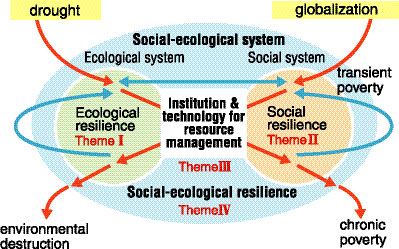 Megkísérli definiálni a Föld azon rendszer-folyamatait, amelyeket az emberiségnek aktívan kell felügyelnie, hogy a kritikus Föld-rendszerekben a pusztító, sőt katasztrofális fordulópontokat elkerülje.
Megkísérli definiálni a Föld azon rendszer-folyamatait, amelyeket az emberiségnek aktívan kell felügyelnie, hogy a kritikus Föld-rendszerekben a pusztító, sőt katasztrofális fordulópontokat elkerülje.
Ez az integrált tudományos keret kihívást biztosít az integrált Föld-rendszer kutatásnak, amely ezután vezérfonalat nyújthat az antropocénbeli globális fenntarthatóság számára. A globális környezeti változásokkal kapcsolatos nemzetközi tudomány, amelytől a Föld-rendszerek működéséről és az emberi társadalmakra gyakorolt hatásáról való tudásunkat nyertük, összehangolt közös erőfeszítést hívott elő (ICSU/ISSC és Belmont Fórum, a globális környezetváltozás kutatás fő adományozóinak koalíciója), hogy meghatározzák a Föld-rendszerek globális fenntarthatóság érdekében való kutatásának egységesített jövőbeli tudományos napirendjét. Ez a kezdeményezés, amelyet ma egy, tudósokból, adományozókból, szponzorokból és felhasználókból álló Szövetség vezet, unikális együttes tervezet, melynek célja, hogy a következő évtizedekre a globális környezeti változásokkal kapcsolatos tudomány teendőit meghatározzák.
*Biomok: bioformációk, klimatikusan és földrajzilag meghatározott, ökológiai szempontból hasonló jellegű életközösségek (növények, állatok, talajlakó élőlények) együttese
Videó: Johan Rockström: Let the environment guide our development!/ Engedjük, hogy a környezet vezesse fejlődésünket!
Gretchen Kalonji,  Assistant Director-General for Natural Sciences, UNESCO on UNESCO Science Report.
Assistant Director-General for Natural Sciences, UNESCO on UNESCO Science Report.
She is the first woman to hold this position.
Dr Kalonji has served in various leadership roles in the University of California system, including as Director of International Strategy Development at the UC Office of the President. Her work, both in materials science and in research and educational innovation, has been recognized with multiple honors and awards.
11:30 - 12:00 COFFEE BREAK
Venues:  1. Academy Club
1. Academy Club

2. Krúdy Hall,
Hungarian Academy of Sciences

